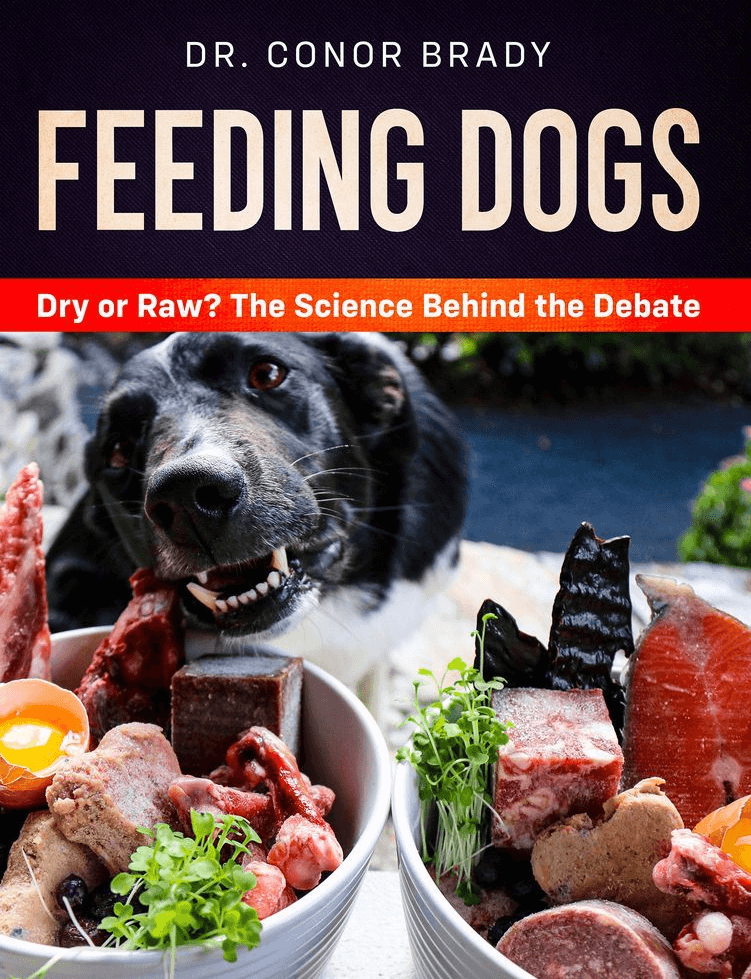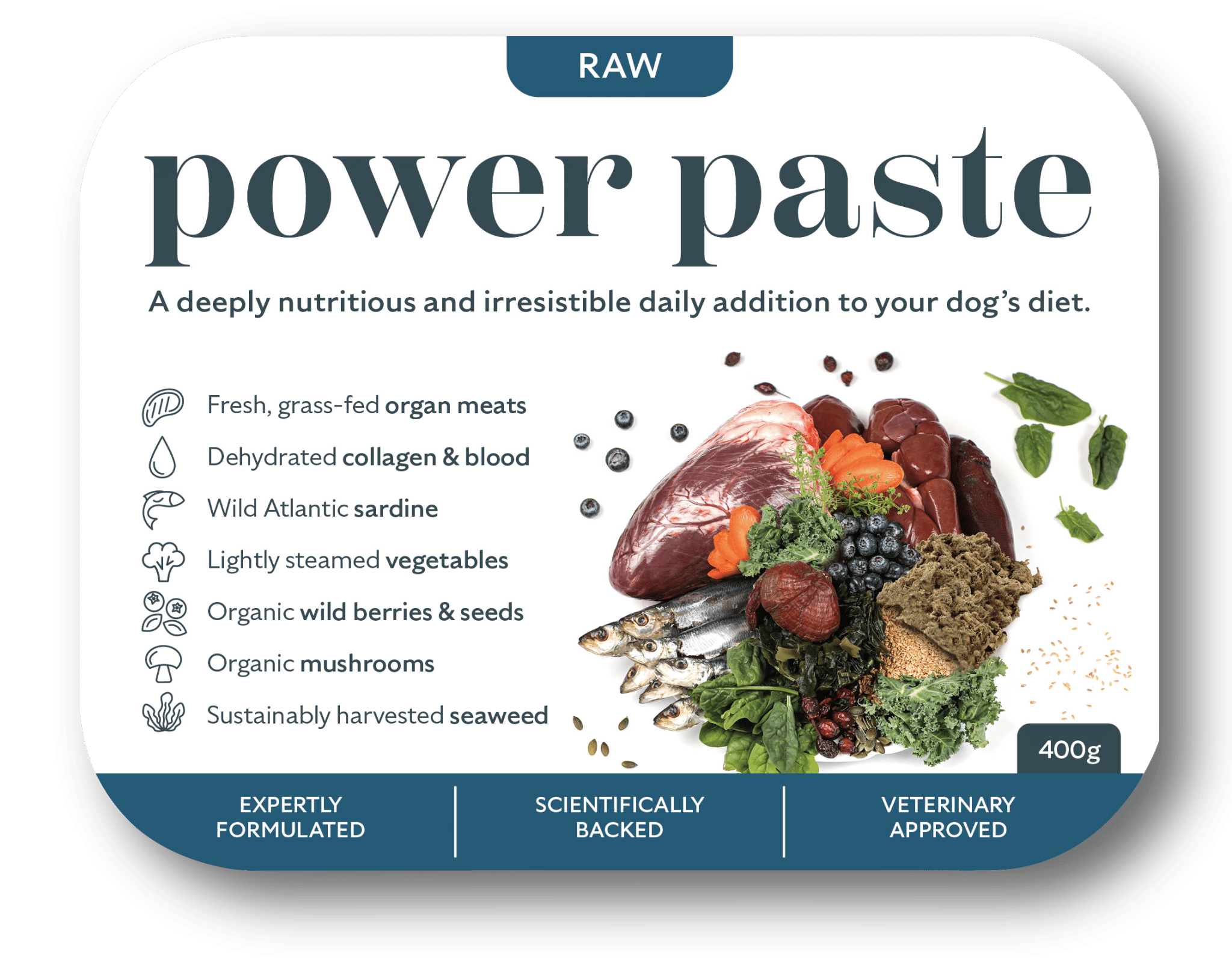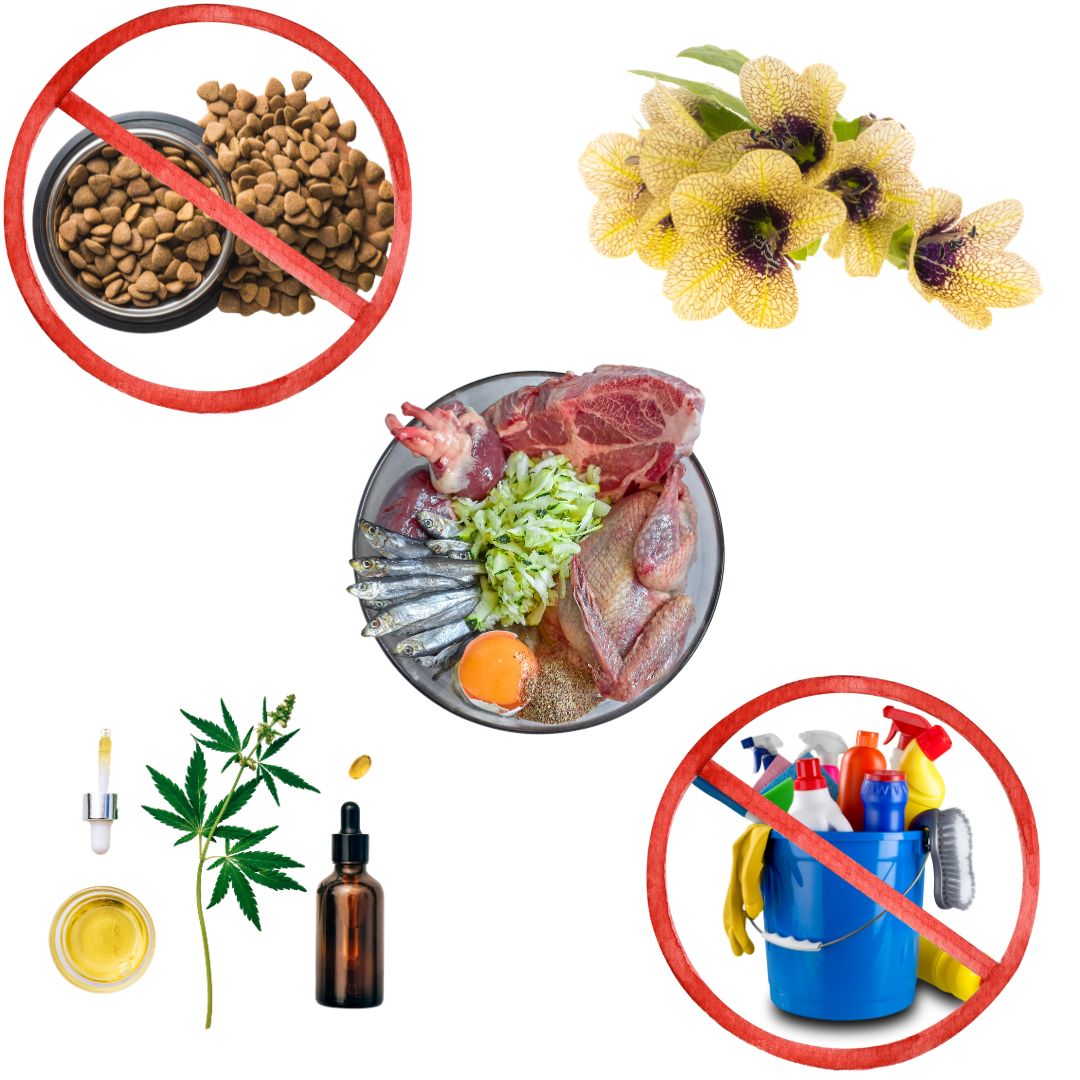It is a sad fact that kidney disease in dogs is an all too common occurrence. Shockingly, between 0.37% (O’Neil et al. 2003) and up to 3.74% (Sosnar 2003) of dogs are affected by chronic kidney disease each day, which is around five times the rate we see in humans. We want to help you prevent your dog from becoming a statistic.
With a vast amount of information to cover on this critical topic, this series on kidney disease in dogs has been split into four separate articles, so grab a cuppa and settle in!
- Article 1: An overview of kidney disease in dogs (this article)
- Article 2: Why dry food causes kidney disease
- Article 3: Why low protein dry food goes directly against the available science on kidney disease in dogs
- Article 4: The best diet for dogs with kidney disease
This article in the series on kidney disease in dogs will be covering the following:
What do the kidneys do?
Your dog’s kidneys are extremely vital organs. They regulate blood pressure, water consumption, blood volume, PH levels, and chemicals such as phosphorus, potassium, and sodium, ensuring these are balanced. The kidneys also regulate calcium and vitamin D levels.

They filter out waste products, keeping the blood clean and able to do its job. They also filter out excess toxins/drugs and debris from the constantly active immune system. All of the extracted waste is excreted in the urine.
Kidneys, in a nutshell, are the body’s filtration system. When they can no longer perform these functions, this leads to kidney failure in dogs.
The fact is, organs, and indeed, kidneys, are like car tyres; the more they wear, the more they tear. So to avoid (or treat) the disease, you need to reduce the amount of work the kidney has to do.
Types of kidney disease in dogs
It is important to note that there are two types of kidney disease in dogs, these are acute kidney disease (AKD) and chronic kidney disease (CKD).
1. Acute Kidney Disease (AKD)
Acute kidney disease occurs when there is sudden, rapid onset of kidney dysfunction. This can happen due to the dog ingesting toxins like antifreeze or rat poison. There are also some foods that cause acute kidney failure in dogs, such as raisins and grapes. AKD can also be a result of urinary obstruction.
AKD needs immediate veterinary attention, catch and treat it early and there is a good chance your dog will recover fully.
2. Chronic Kidney Disease (CKD)
Chronic kidney failure in dogs occurs slowly, over a more extended period, as the kidneys gradually lose function. CKD is much more common in older pets. It can take a while for symptoms to become apparent, which is much more challenging to treat the issue.
That’s why, as your pet ages, six monthly or annual blood tests may be a good idea, just to check how well the kidneys are functioning.
Symptoms of Kidney Disease in dogs
Symptoms can be different for acute and chronic kidney disease.
Symptoms of Acute Kidney Disease in dogs
- Extreme lethargy
- Diarrhoea
- Loss of coordination
- Disorientation
- Vomiting
- Severe physical weakness
- Difficulty urinating (in cases of a urinary obstruction)
- Complete loss of appetite

Symptoms of chronic kidney disease in dogs
- Increase in thirst/Urgency to drink and keep drinking
- Increase in urination and occasional incontinence
- Vomiting and diarrhoea
- Reduced appetite
- Dry nose and dry paw pads
- Weight Loss
- Poor Body and Coat Condition
- Unpleasant/unusual smelling breath
- Lethargy
- Urine infections
What causes kidney disease in dogs?
Think of the kidneys like a six-lane motorway. When your dog is young, the cars can whizz along with no issues. As time passes, certain factors start to slow that traffic until too many cars are on the road and the traffic comes to a halt. You need to remove some vehicles from that road to help it flow better again. This is what happens to your kidneys after years of them having to work super hard to filter so much toxicity from your body. Some of the top causes of this overload of work for the kidneys are;
- Ultra-processed, poor quality dry and canned foods
- Poor dental health
- Vaccinations
- Toxins – including conventional flea/tick/worming preventatives and household chemicals – cleaning products and scented plug-ins and candles
- Stress
- Studies show that chronic gut issues including “leaky gut” and dysbiosis in the gut microbiome can affect the kidneys
- Infection
- Kidney trauma
- High blood pressure (hypertension)
- Autoimmune disease
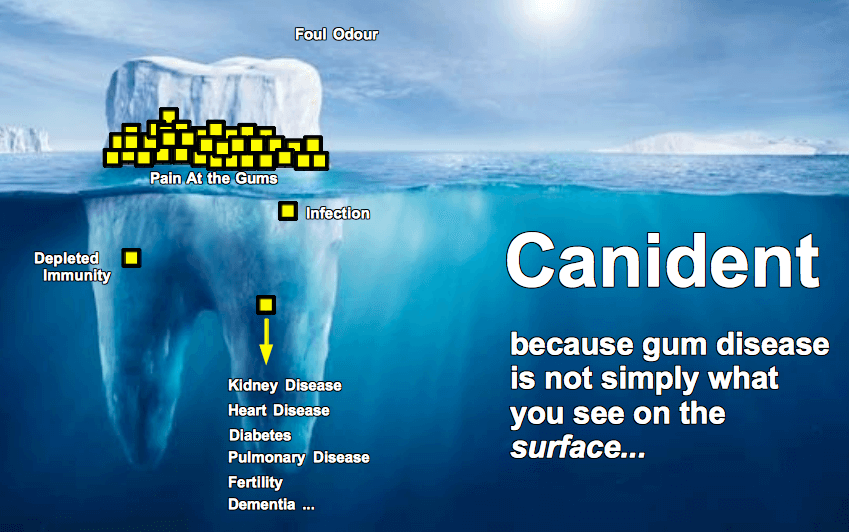
Foods that cause kidney failure in dogs
If you think your dog has consumed grapes or raisins, even a minuscule amount, you must get them to the vet ASAP. They contain toxic chemicals which can cause fatal kidney failure in dogs. Time is of the essence here, folks, so please get to the vet as soon as you realise they have eaten them.
Contrary to what your vet may have led you to believe, as they hand you that expensive bag of Hills K/D dog food, dry ultra-processed pet food is one of the top causes of chronic kidney failure in dogs (and cats) because it is:
- void of water (water is essential for kidney function),
- high in salt (terrible news for kidneys),
- packed full of chemicals additives (putting extra strain on those kidneys)
- full of carbohydrates and meat that has been cooked beyond all recognition, which is hard to digest and antigenic to the body.
- grain mould found in dry food is linked to kidney disease
These are only some of the reasons dry food negatively impacts kidney health. For more, please go to part two.
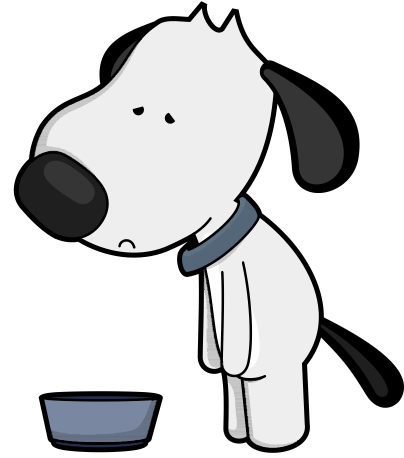
Diagnosing kidney disease in dogs
There are two basic tests that are carried out by a vet to determine your dog’s kidney function:
1. Complete urinalysis (measuring the urine)
Your vet will ask for a sample of your dog’s urine and they will be looking at the following;
- Urine Specific Gravity (USG). This tests how concentrated your dog’s urine is. A healthy kidney will produce concentrated (dense) urine. Diluted or watery urine may signify an issue with the kidneys. If your dog has drunk lots of water, any excess will be passed out in the urine, making it more diluted, which is normal. If a dog’s urine is consistently diluted, this may indicate a change in kidney function. The healthy range of USG for dogs is 1.001 to >1.075.
- Protein in the urine – This urine test measures how much protein is being lost through the kidneys. Healthy kidneys only filter a trace amount of protein into the urine; when they are damaged or their function is compromised, this can lead to more significant amounts of protein leaking through the filters (glomeruli) and out into the urine.
- Urine Protein: creatinine (UPC) ratio – This measures the amount of protein and creatinine in the same urine sample. They will then calculate the differences between the two values as a ratio. Creatinine is a natural waste compound produced by muscles, filtered through the kidneys, and excreted in the urine. As the kidneys filter creatinine constantly, it can be an excellent gauge to assess how much or how few other substances are being excreted. The usual range of UPC in dogs is <0.5.
For the UPC test to be interpreted correctly, the BUN and CREA tests (below) must also be carried out.

2. Blood biochemistry analysis (blood test)
- There are levels of two waste products in the blood that will be measured, and these indicate how well the kidneys are working to filter them out of the body – these are blood urea nitrogen (BUN) and blood creatinine (CREA). BUN stands for blood urea nitrogen; these are the primary waste products from protein metabolism. The kidneys should filter BUN and blood creatinine, so a higher than usual level indicates that the kidneys are not functioning as they should be, and these waste products are building up in the blood. This is not always due to renal failure; this can be due to dehydration or urinary obstruction. BUN levels are usually between 25-30 mg/dL and CREA less than 0.1 mg/dL.
It is vital to note here that studies show raw-fed dogs consume more protein than dry-fed dogs and thus have around 30% more protein in their blood. The study states, “Higher blood urea nitrogen (BUN) in all raw diet fed groups (range of 18.8 ± 6.9 – 22.0 ± 8.7 mg/dL) versus cereal-based kibble (15.5 ± 4.7 mg/dL).”
- A more recent blood test assesses the level of SDMA. SDMA (symmetric dimethylarginine) is an amino acid that the body produces when protein is broken down; it is then excreted through the kidneys. SDMA is a much more sensitive and early indicator of renal function; it can detect loss of function at 25% compared to BUN & CREA tests which will only detect kidney disease at 75% deterioration.

Your vet may also carry out other tests such as x-rays or ultrasound imaging which looks at the size and shape of the kidneys and to determine if there are any other issues like kidney stones or tumours.
Treatment for kidney failure in dogs
By far, the most important factor when treating kidney disease in dogs is diet. Feeding a fresh, species-appropriate diet with natural additions like certain herbs and vitamins (more in part 4) will help to take the pressure off those already struggling kidneys. Burdening them with ultra-processed, dry food, chemical worm/flea/tick treatments, and boosters will wear the kidneys out far quicker.
As the disease progresses, tweaks may need to be made to the diet. Further down the line, some conventional treatments may be required, but your dog needs real, fresh food for now! Part 4 contains detailed information on natural remedies for kidney disease in dogs.
Life expectancy for a dog with chronic kidney disease.
With early diagnosis, careful monitoring, and appropriate diet/treatment, dogs can survive for a good while with minimal (as little as 5-8%) kidney function. While no treatment can cure or reverse this progressive disease, appropriate tests, treatment, and most importantly, a high-quality fresh food diet can ensure the progression is slow.
Early detection is vital with kidney disease in dogs; often, when you notice symptoms, only roughly 25% of kidney function remains.
Dogs can live a good quality of life for many months or years with this disease.

Preventing kidney disease in dogs
While it is vital to know how to assist with kidney disease, it is also hugely important to learn how to prevent it from happening in the first place. There are a few key things you can do to ensure that your dog’s kidneys aren’t having to work harder than they need to:
- It is vital to feed them a fresh food (organic where possible) species, appropriate diet from as soon as they come off Mum.
- Ditch all of the ultra-processed foods, from dry and canned foods to treats
- Good dental hygiene is vital (raw meaty bones are nature’s toothbrush but be careful in later stage kidney disease when phosphorus may be an issue…be led by their bloodwork!)
- Provide a constant supply of fresh, filtered water
- Always keep those toxic foods (raisins, grapes, etc.) out of reach!
- Do not bombard your dog with toxic chemicals – avoid flea/tick/worm treatments where you can and unnecessary boosters
- Be aware of the toxic load your dog is exposed to in your home, from scented candles and cleaning products to washing powder – swap those anti-life cleaning products to pro-life probiotic cleaning products
- Work with qualified behaviourists to address any stress or anxiety your dog may be experiencing
- As your dog moves into their senior years, regular blood tests will keep an eye on any changes in kidney function, this may help pick up any issues at the very early stages.

The best food for your dog’s kidneys
As mentioned above, we cannot stress enough how a fresh food diet is the best way to not only help a dog with renal disease but how it can assist in preventing it.
For early chronic kidney disease, the best food is fresh, raw meat, steamed leafy greens, herbs, etc. As the disease progresses, you may need to tweak this diet, dropping the phosphorus and potassium contents, for example.
By end-stage kidney disease, we may even need to drop the protein content. For more details on this please go to part 4.
The following article, part 2 in our series on kidney disease, focuses on dry food and why it is one of the top foods that cause kidney disease in dogs.
FAQ on Kidney Disease in Dogs
1. Is chronic renal failure the same as chronic kidney disease?
Yes, both terms are commonly used to describe the same thing. Some vets may reserve “failure” for when the disease is in the end stages.
2. Can a dog itself recover from renal failure?
No. Acute renal failure needs immediate veterinary attention; if your dog has consumed something toxic, this can be fatal.
Chronic Renal failure is progressive and cannot be cured. Your dog will need natural and (at later stages) conventional treatments to ensure their kidneys can continue functioning.
3. How do dogs get kidney stones?
High cereal (carbohydrate) diets are linked to the formation of calcium oxalate stones and struvite crystals. Part 2 explains this in greater detail!
4. Does grain-free dog food cause kidney problems?
No. Fresh, raw food would be classed as grain-free and is the best possible diet to avoid kidney problems. However, the term “grain-free” is aimed at the processed pet food industry. Although it is not specifically grain-free food causing kidney problems, if you are feeding a grain-free kibble diet, your dog is still eating a large amount of carbohydrates and poor-quality protein (like soy, for example). Grains can play a part in kidney disease; learn more in part 2 about why grains are enemies to your dog’s kidneys.
5. When do most cases of chronic kidney disease occur?
Chronic kidney disease is usually associated with ageing; as the dog ages, the kidneys may start to degenerate. It is difficult to specify an age as each dog is very different, and lifestyle factors influence how early, how late, or if there will be any kidney disease. As your dog moves into older age, be aware of the symptoms above and take the actions detailed in this series on kidney disease.
Consult for Your Dog’s Kidney Disease
If your dog has kidney disease and you would like to know more on how to help support them with good nutrition or you would simply like some assistance with making that switch to real food, we offer consults, and we’d love to help you and your dogs.
Link to Part 2 – why dry food causes kidney disease
Link to Part 3 – why low protein diets are NOT recommended
Link to Part 4 – the ideal diet and supplements for a dog with chronic kidney disease
References Used
- Sosnar, M. (2003). Retrospective study of renal failure in dogs and cats admitted to University of Veterinary and Pharmaceutical Sciences Brno during 1999–2001. Acta Veterinaria Brno, 72:593–598.
- O’Neill, D.G., Elliott, J., Church, D. B., McGreevy, P.D., Thomson, P.C. and Brodbelt, D.C. (2013). Chronic Kidney Disease in Dogs in UK Veterinary Practices: Prevalence, Risk Factors, and SurvivalJournal of Veterinary Internal Medicine, 27:814–821



